#frantz fanon
Explore tagged Tumblr posts
Text




Frantz Fanon, Black Skins White Masks
368 notes
·
View notes
Text


4K notes
·
View notes
Text

Mumia Abu-Jamal addressing the CUNY Gaza solidarity encampment.
3K notes
·
View notes
Quote
Two centuries ago, a former European colony took it into its head to catch up with Europe. It has been so successful that the United States of America has become a monster where the flaws, sickness, and inhumanity of Europe have reached frightening proportions.
Frantz Fanon, The Wretched of the Earth
670 notes
·
View notes
Text

"Two centuries ago, a former European colony decided to catch up with Europe. It succeeded so well that the United States of America became a monster, in which the taints, the sickness and the inhumanity of Europe have grown to appalling dimensions."
-Frantz Fanon
404 notes
·
View notes
Text
In his seminal The Wretched of the Earth, Frantz Fanon could be writing about Gaza when he said: “In all armed struggles, there exists what we might call the point of no return. Almost always it is marked off by a huge and all-inclusive repression which engulfs all sectors of the colonial people.” In Israel, Gaza and the West Bank, that point has arrived. From Gaza to the Red Sea, on all fronts the West is now unmasked as a lawless killing machine in terror of losing control. Genocide, starvation and war, defended with Olympic-level diplomatic double-speak, are its only answers to the fact that the Global South, and the nations of the Middle East (if not their leaders) no longer wish to live under US hegemony. Jean-Paul Sartre, in his preface to Fanon's work, wrote of western colonialism: “Our Machiavellianism has little purchase on this wide-awake world that has run our falsehoods to earth one after the other. The settler has only recourse to one thing: brute force… the native has only one choice, between servitude and supremacy.” Fanon was a revolutionary thinker and a practising psychiatrist of colonial racism and its psychic impact on the colonised, and the coloniser. He and Sartre were writing about France’s imminent defeat in Algeria after seven years of brutal war. [...] Western powers are involved in conflicts thousands of miles from home, as they were in Fanon's time in Algeria, Congo and Indochina. Today the western political class has united behind Ukraine and Israel, but for millions of people it is no longer clear that the wars are worth fighting. As Yemen’s spokesman, Mohammed al-Bukhaiti, put it: “The war today is between Yemen which is struggling to stop the crimes of genocide, and the American and British coalition [who] support its perpetrators. Every party or individual in this world has two choices that have no thirds… who do you stand with as you watch these crimes?” Fanon, writing 63 years ago, agrees: “The colonial world is a Manichaean world… at times this Manichaeism goes to its logical conclusion and dehumanises the native, or to speak plainly, it turns him into an animal. The native is declared insensible to ethics; he represents not only the absence of values, but the negation of values… he is the enemy of values, and in this sense he is the absolute evil. “The native knows all this, and laughs to himself every time he spots an allusion to the animal world in the other’s words. For he knows he is not an animal, and it is precisely at the moment he realises his humanity that he begins to sharpen the weapons with which he will secure victory.”
. . . full article on MEE (1 Feb 2024)
You can also find a free copy of Fanon's The Wretched of the Earth on the Internet Archive (available as a PDF, EPUB etc.)
1K notes
·
View notes
Text
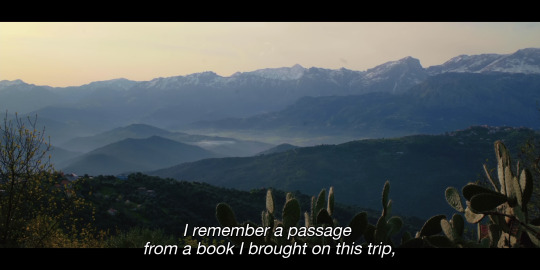
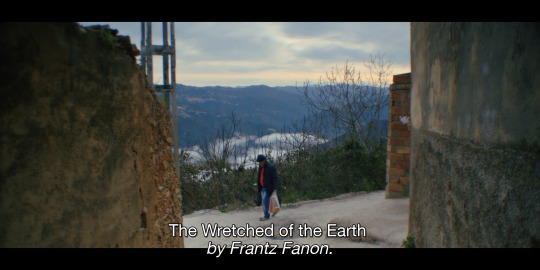
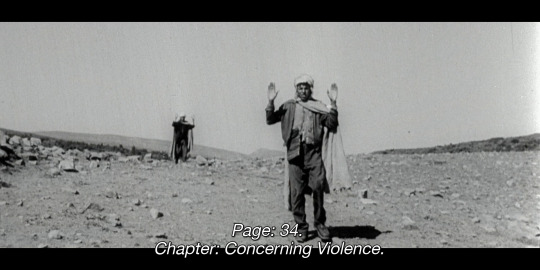
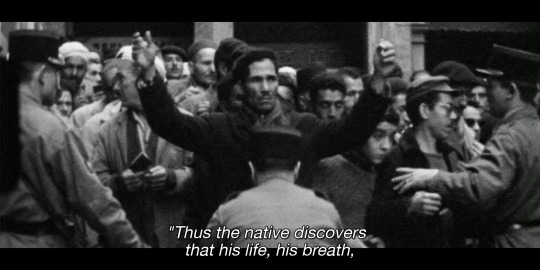
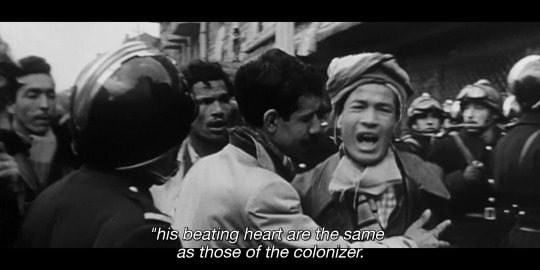
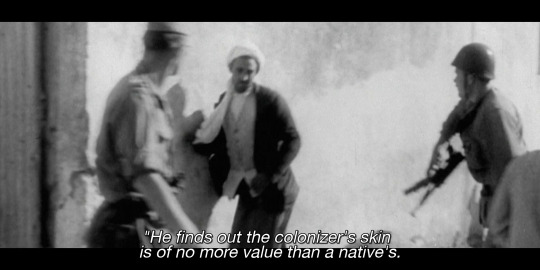
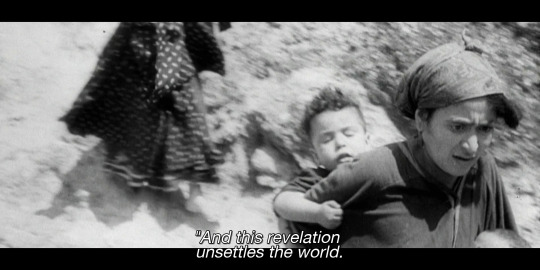
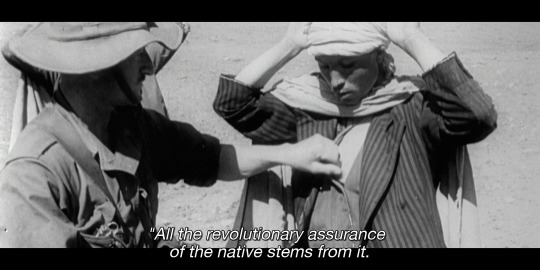
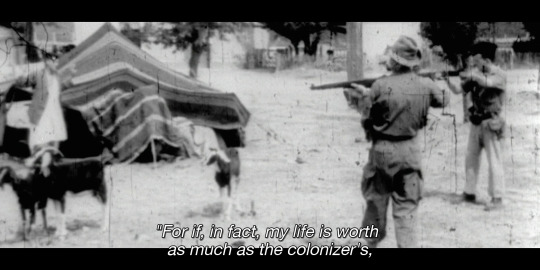
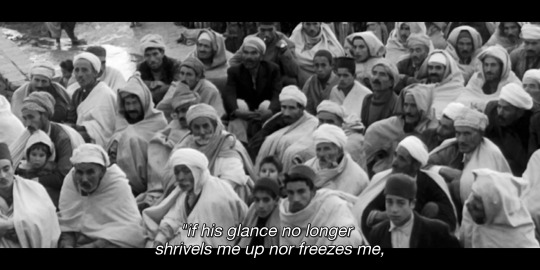
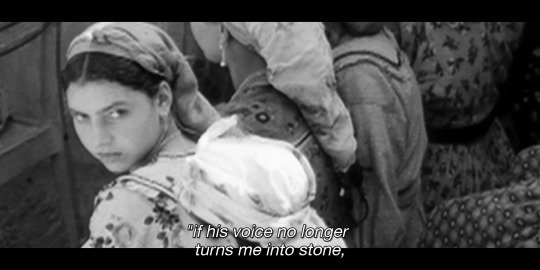
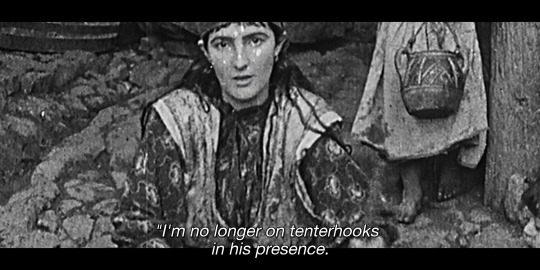
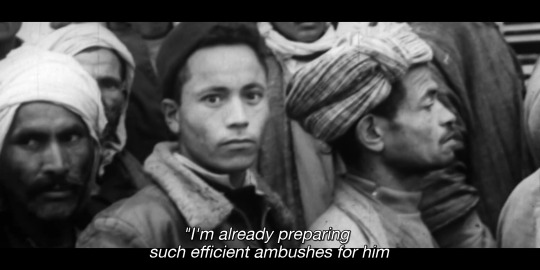
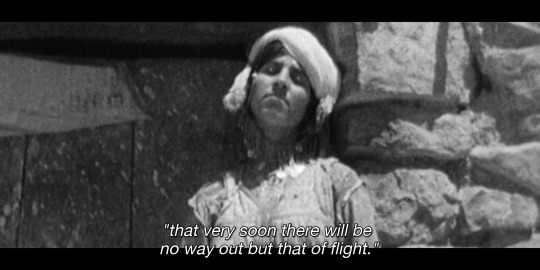
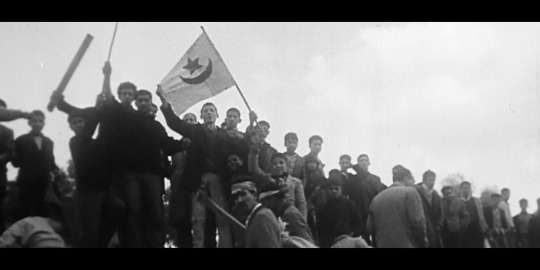
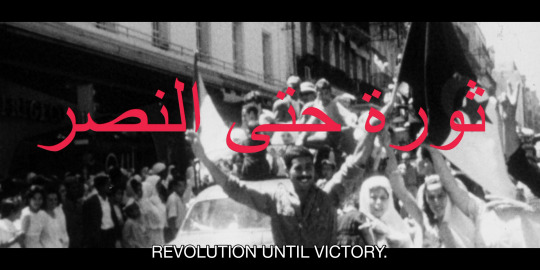
Karim Aïnouz
- Mariner of the Mountains
2021
#frantz fanon#the wretched of the earth#Mariner of the Mountains#Karim Aïnouz#Karim Ainouz#O Marinheiro das Montanhas#brazilian film#2021
1K notes
·
View notes
Text
Rereading Fanon’s speech at Accra in Ghana (March-April 1960) and I had completely forgotten that the French colonizers used the exact same argument as the Israeli colonizers. “They hate peace that’s why we have to fight them”
I love Fanon’s answer to that argument.
“No, the violence of the Algerian people is neither a hatred of peace nor a rejection of human relations nor a conviction that only war can put an end to the colonial regime in Algeria.
The Algerian people have chosen the unique solution that was left to them and this choice will hold firm for us.
De Gaulle said “We must break the Algerian people”. We reply ���Let us negotiate, find a solution that is commensurate with contemporary history. But know that if you want to break the Algerian people, you will have to accept seeing your armies break themselves against the rampart of the glorious Algerian soldiers.””
#frantz fanon#Fanon’s speech#why we use violence#algeria liberation#Algerian revolution#settler colonialism
744 notes
·
View notes
Text
DECOLONIAL ACTION READING
I recently compiled these to add to a comrade’s post about Land Back, but actually I think they deserve their own post as well.
Amílcar Cabral - Return To The Source
Frantz Fanon - The Wretched Of The Earth
Hô Chí Minh - archive via Marxists.org
Thomas King - The Inconvenient Indian
Abdullah Öcalan - Women’s Revolution & Democratic Confederalism
Edward Said - The Question Of Palestine
Thomas Sankara - archive via Marxists.org
Eve Tuck & K. Wayne Yang - Decolonization Is Not A Metaphor
Other key names in postcolonial theory and its practical application include:
Sara Ahmed
Homi K. Bhabha
Aimé Césaire
Albert Memmi
Jean-Paul Sartre
Léopold Séder Senghor
Gayatri Chakravorty Spivak
All of these will help you interpret and confront the realities of colonisation, and ideally help us understand and extend solidarity to comrades around the globe. Decolonise your mind, and don't stop there!
#land back#postcolonial#postcolonialism#postcolonial theory#decolonization#decolonize#decolonise#decolonisation#Edward Said#Tuck & Yang#Frantz Fanon#Amilcar Cabral#Free Ocalan#Sankara#Ho Chi Minh#Thomas Sankara#Abdullah Ocalan#original#Thomas King#Eve Tuck#K. Wayne Yang
3K notes
·
View notes
Quote
Everything can be explained to the people, on the single condition that you really want them to understand.
Frantz Fanon, The Wretched of the Earth
175 notes
·
View notes
Text





Today 11/1/2024 is the seventieth anniversary of the publication of the Declaration of 1 November 1954 and beginning of the Algerian War of Independence.
The Algerian war was a landmark decolonization war. Algeria had been colonized in the mid 19th century by the French, between 500,000 and 1,000,000 Algerians were killed out of 3 million. The following decades continued with brutal oppression, Algeria was unique because it was legally classified as an integral part of France
The aftermath of the Second World War provided a unique situation. The imperial powers had fought themselves to exhaustion, suddenly formely colonized nation's were able to rise up and begin to cast off the imperial yoke.
The conflict between The National Liberation Front (FLN) and France was incredibly violent. France responded to the revolt with extreme brutality and repression, utilizing mass killings, torture, and concentration camps, 8,000 villages were destroyed and between 500,000 and 1.5 million Algerians were killed. Ultimately the Algerian people prevailed and won independence in 1962. The Algerian War is an important reminder of the horrors of colonialism and the valiant struggle for freedom.
I highly recommend A Dying Colonialism by Frantz Fanon as an excellent look into the Algerian struggle. Fanon once said "having a gun is the only chance you still have of giving a meaning to your death." These words ring especially true today for all people's engaged in a decolonization struggle.
May the independence struggle of the heroic Algerian people never be forgotten.
Long live Algeria
#algeria#algerian war#guerrilla war#decolonization#history#frantz fanon#this is my first time trying to make a post like this#if i made any mistakes please let me know
377 notes
·
View notes
Text

#spiderman#spiderverse#across the spiderverse#atsv#spiderman atsv#miles morales#peter b parker#gwen stacy#spider gwen#pavitr prabhakar#atsv pavitr#hobie brown#atsv hobie#spiderpunk#frantz fanon#spiderverse meme#spiderverse fanart#atsv art#i had fun with hobie's pins#wow look at me i finally posted an art after like 7 or 8 months#been so busy lately my god#anyway so hobie says free palestine#stuff i made
221 notes
·
View notes
Text
Fanon’s observations in Algeria and elsewhere underscore the fact that colonialism, like the men who run that violent machine, is impervious to appeals to reason and stubbornly refuses to acknowledge the humanity of the other, thereby engendering untold violence. Fanon not only demonstrates the ugly manifestations of violence, but he also explains its liberating role in situations in which all other means have failed. The colonizer depends on and understands only violence, and he has to be met with greater violence: “Violence alone, violence committed by the people, violence organized and educated by its leaders, makes it possible for the masses to understand social truths and gives the key to them.” During Algeria’s struggle for independence, it became clear to Fanon and the Algerian people that when all peaceful measures failed there remained only one recourse: to fight. Palestinians today are doing just that, with formidable courage and heroism but at an incredibly high cost. Fanon has been unfairly and wrongly accused of being the prophet of violence. In fact, what he does is describe and analyze the violence of the colonial system. Far from making an apology for violence, he judges it unavoidable as a response to the violence of colonization, of domination, of man’s exploitation of man.
28 June 2024
252 notes
·
View notes
Text
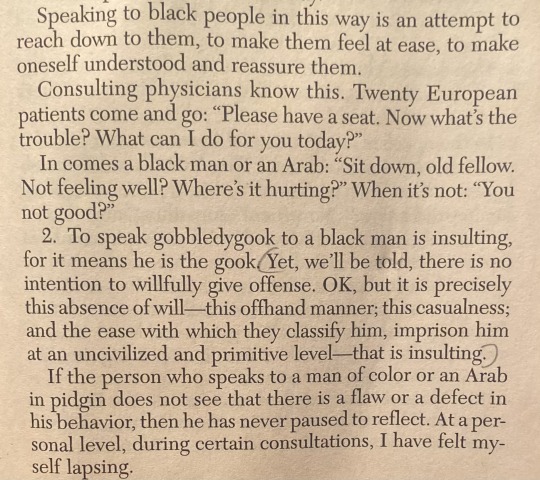
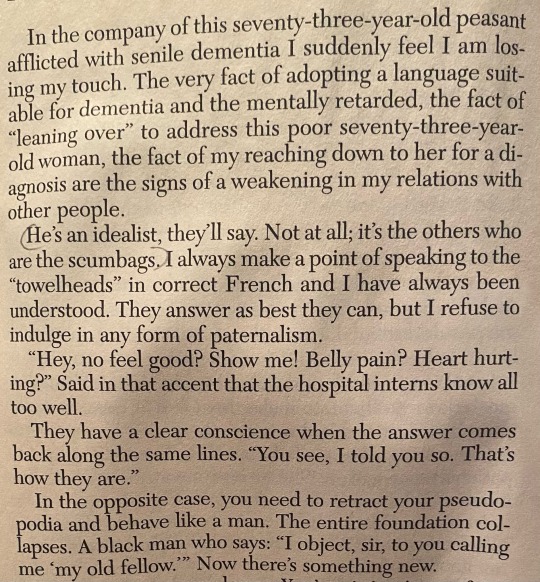
Frantz Fanon’s Black Skins, White Masks
372 notes
·
View notes
Text



edward said on frantz fanon
89 notes
·
View notes
